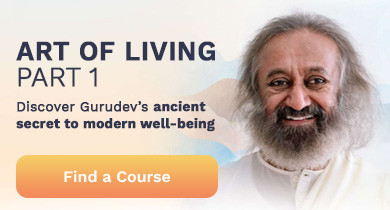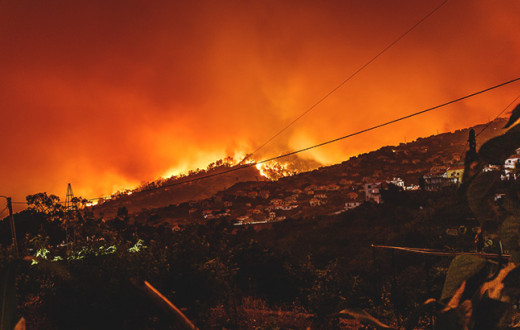By giftglobal.org | Posted: September 25, 2018
If a cat has 9 lives, Leslye Moore surely has 18 or more. For over 20 years, Leslye was an international aid worker, serving in some of the most dangerous outposts imaginable – Rwanda in the uptick to the genocide, strife-torn Bosnia and Croatia, and remote Zaire during a civil war, to name just a few.
Her stories rival the most hair-raising, action-adventure film or novel, but for the fact that they’re all true and she somehow survived to share them with us. More importantly, she’s put her experiences (and her own personal recovery from PTSD) to good use, helping people recover from the trauma of war and rebuild their lives.
I have been on the verge of death so many times that I can only conclude that something must keeping me here for a reason. The list of close encounters includes, but is not limited to, malaria, bombings, poisoning, motorcycle mishaps in the jungle, marauding militia, artillery barrages, sectarian violence, death threats, lightning jolts and skin of the teeth evacuations.
What compelled me to put myself in such harm’s way? It started with how my mom instilled this idea of service in me at a very early age – of being useful and helpful to others. Added to that was my adventurous side of being attracted to different languages and cultures. The other element was definitely an addiction to adrenaline, my drug of choice during that time of my life. You see this same addiction in a lot of aid workers and military people. It’s during a very intense, visceral experience (close to death), when you feel the most alive. There was a thrill in seeking those extremes that I (and almost everyone I know who shares this experience) wasn’t fully conscious of feeling. It was only when I discovered meditation years later that I suddenly had zero desire to go into situations like that any more. Maybe age and wisdom also had something to do with it.
My time in Rwanda contains the best example of the crazy life I lived as an aid worker. Returning to the US after serving in the Peace Corps in Zaire (another harrowing story), I got a graduate degree in international development and was working for the University of San Francisco’s Center for AIDS Prevention Studies. There I was interviewed for a job that had two major requirements: to speak French and be willing to go to a war zone. Pick me!
It was 1993, and Rwanda was so dangerous that the US government was evacuating people. The civil war between the Hutu and Tutsi populations was heating up that year. The director of the project was pregnant and back in California, so she pretty much put me in charge. At the time, people were still trying to learn what HIV/AIDS was, how it was transmitted and the natural progression of the virus. There were no medications available, and in the capital Kigali where I was, about one-third of the population was HIV positive. So there were some crazy scenarios going on related to that.
They would come with bags, and we had security guards checking them for bombs. Bombing and poisoning were the big things in Rwanda. You could buy hand grenades in the market. Easy access. I was waiting to get blown up or poisoned. Our head cook where we were living was known to come from a family of well-known poisoners. When we found out he was stealing and let him go, we scrubbed down every pot and pan and threw out all the food to make sure we didn’t get poisoned by him. If we went to a bar, the waiter would always open the bottles at our table, and then you’d have to keep your hand over the bottle to make sure no one could slip poison in. I would go out with friends. Our strategy was to go to a recently blown up place because we figured if they just bombed it yesterday, it should be safe. It was a sick and twisted way of living, but the situation was deteriorating quickly as the war got closer to Kigali.
The closest I got to getting blown up occurred within seconds of one of my daily stops at the post office. I drove away from picking up the mail for about 30 seconds when I heard a big explosion. The mailbox next to mine had a bomb in it that blew up. In addition, there was my accidental exposure to contaminated blood. And the time when my boss (who had returned from California) thought I was an intruder and almost shot me. Then, I was eating chocolate mousse in a little French café with a friend when machine gun fire went off a block away. I didn’t bat an eyelash and kept eating my mousse. Then it dawned on me— ‘for me to be OK with this is probably not OK.’
There were IEDs on the roads hidden under palm fronds. I was getting used to seeing dead bodies in the street. People were being beaten to death before my eyes. I knew the genocide would happen, and something was about to trigger it, perhaps just a month or two later. I decided for a whole number of reasons that it was time to get out of there. If I bore witness to the genocide, it would crush me. I just wouldn’t be able to recover and be effective in the world anymore. Most of my 50 staff members were killed. My young, 26-year-old mind didn’t know how to begin to process this tragedy. It wasn’t until 11 years later in a silent meditation retreat that all the pent up stress came out. I cried for 3 days. The intense grief and a release of the survivor’s guilt left behind from what I had endured all came gushing forth.
Returning to the States after another dangerous stint in Bosnia and Croatia, I was in Miami as the director of a resettlement agency working with refugees and victims of human trafficking. Here I was, dealing with a crazy dysfunctional office, trying to help trafficked people when their traffickers were still at large, many in the Russian and Chinese mafias. It was another hairy situation—and both I and my husband (whom I had married in Bosnia) had PTSD. We were a mess. I wasn’t sleeping. I had digestive problems and an out of control temper with hypervigilance. My staff walked on eggshells around me.
A colleague of mine working at another agency was using some modalities to help bring relief to people who had been exposed to trauma. She told me about the Art of Living Course by Gurudev Sri Sri Ravi Shankar. I took the course and it was life-altering for me. The first time I did the SKY breathing meditation, I felt this boiling rage coming out of me. Oh my God, what is this? The release of all the pent up anger and rage was appropriate but unexpected. The next day, I felt completely blissed out. So, the journey began. As I began feeling fulfilled inside, that fullness wanted to express itself out into the world in terms of service and helping others. How I was presenting myself to others changed dramatically, from being this hot-headed, stressed-out person to being compassionate, a good listener and present for others in a way I never could before.
I also slowly became more dissatisfied with my work. My clients languished in the depths of despair, suicidality, depression and anxiety. Struggling so much, these ghosts just existed for their kids, hoping their children would someday have it better than themselves. I was helping them get jobs and apartments. So what, I thought, what’s the point if I can’t help them to move past that?
I saw how the larger institutions didn’t focus on the inner well-being of these individuals, just their practical, most basic needs. That shifted me out of relief work completely. I took a leave of absence for a while, went to India and came back committed to work full time with trauma-affected populations—to get their lives back and help them thrive as individuals with hope in their eyes for the future.
If you would have told me several years back that I’d be working with veterans and loving it, I would have told you that you were nuts. I was always working on the other side of the conflict. War made me crazy because I saw children without parents, and all the suffering and displacement.
I was on a silent meditation retreat that was being taught by a friend, John Osborne, the director at the time of an organization called Project Welcome Home Troops. He showed a video of some veterans who had gone through the program. One was a Vietnam vet describing experiences that were exactly the same as mine–-stepping over dead bodies and feeling total numbness. I immediately identified with them, and a month later I was working with the veterans program. At the same time, I was also managing a program in Iraq that taught the same techniques to Iraqi war survivors. It struck me that these are all suffering human hearts, no matter what side of the conflict they’re on, no matter what they saw, did or endured. I made the full shift to really seeing the need. I felt very much at home with the veterans. They’re incredible people with such heart.
At first, when I speak in front of a new group, I introduce myself and tell them a little bit of my background but not too much. But as it goes on, I let myself become more vulnerable with them. I tell them that I’m sitting here alive because of men and women like them. I had my butt pulled out of so many hairy situations by military people of many different uniforms. I talk about my experience with PTSD and how I was not dealing with life when I came back. They soon see me as a little beacon of hope, a centered, happy person, and say, “Wow, if she could move through that, then maybe that happiness is available for me, too.” They understand that I’ve never walked in the boots of a military member, but I’ve had close enough exposure to death and devastation to speak with clarity. They’ve joked with me, “You’re a veteran of a different kind--but you were crazy. You were there without a weapon.”
With this work, everything I went through overseas makes sense. I feel like my whole life has prepared me for the work I’m doing now. What practicing and later teaching meditation has done for me, and what I hope it’s doing for others, is to give a new perspective on life. Today, it’s remarkable how I can have the most horrendous day and go home and sleep like a baby because the stuff doesn’t stick to me anymore.
Leslye Moore serves as national director of Project Welcome Home Troops, which is a GIFT National Partner. Leslye also serves on the GIFT Veterans’ Initiative’s Executive Committee as a Mastermind.
To reach out to Leslye and find out more, visit www.pwht.org as soon as you can.
This article was originally published on giftglobal.org at the following link: https://giftglobal.org/leslye-moore/#



















